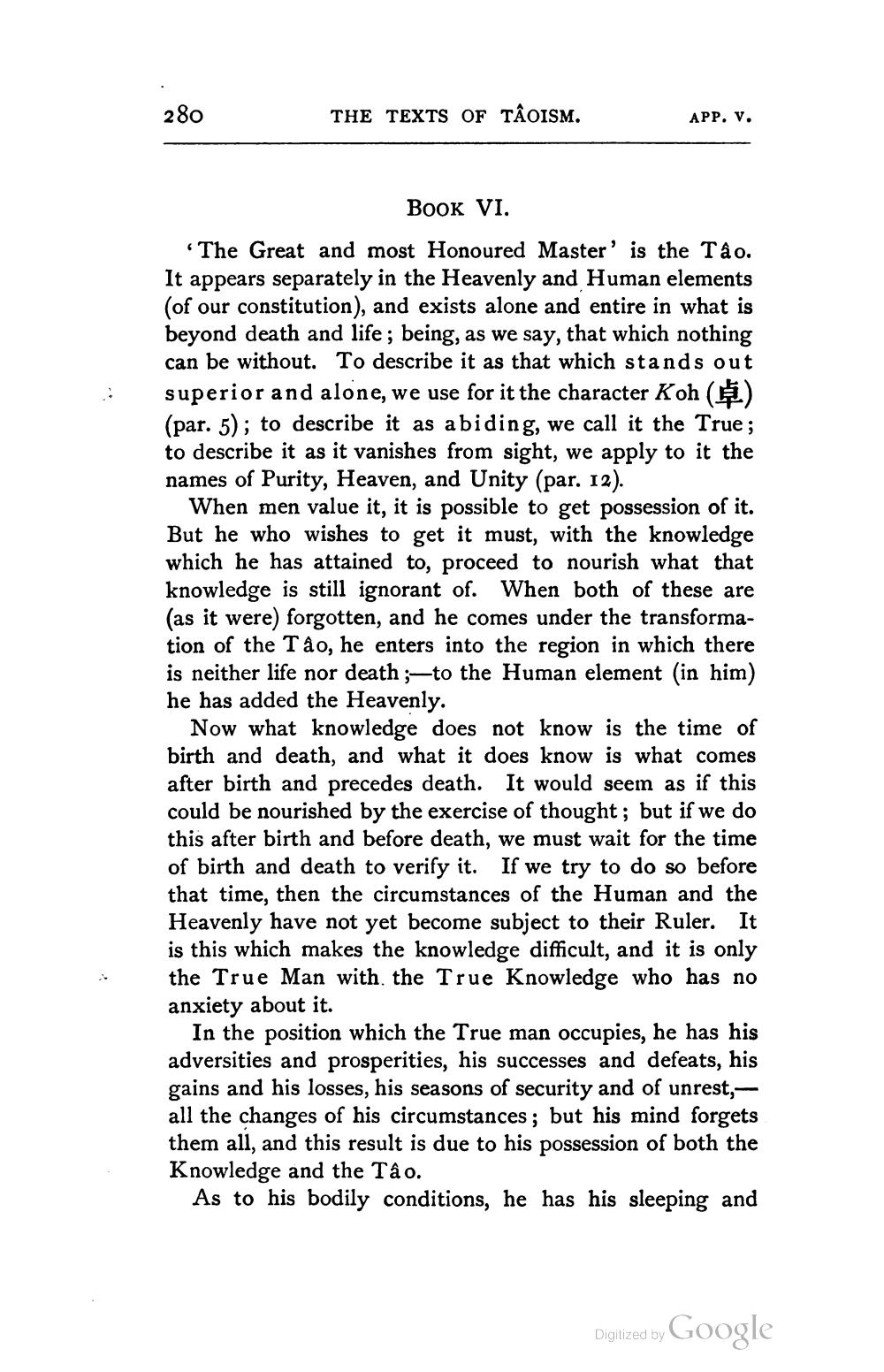________________
280
THE TEXTS OF TÂOISM.
APP. V.
BOOK VI.
The Great and most Honoured Master' is the Tao. It appears separately in the Heavenly and Human elements (of our constitution), and exists alone and entire in what is beyond death and life; being, as we say, that which nothing can be without. To describe it as that which stands out superior and alone, we use for it the character Koh (2) (par. 5); to describe it as abiding, we call it the True; to describe it as it vanishes from sight, we apply to it the names of Purity, Heaven, and Unity (par. 12).
When men value it, it is possible to get possession of it. But he who wishes to get it must, with the knowledge which he has attained to, proceed to nourish what that knowledge is still ignorant of. When both of these are (as it were) forgotten, and he comes under the transformation of the Tao, he enters into the region in which there is neither life nor death ;-to the Human element in him) he has added the Heavenly.
Now what knowledge does not know is the time of birth and death, and what it does know is what comes after birth and precedes death. It would seem as if this could be nourished by the exercise of thought; but if we do this after birth and before death, we must wait for the time of birth and death to verify it. If we try to do so before that time, then the circumstances of the Human and the Heavenly have not yet become subject to their Ruler. It is this which makes the knowledge difficult, and it is only the True Man with the True Knowledge who has no anxiety about it.
In the position which the True man occupies, he has his adversities and prosperities, his successes and defeats, his gains and his losses, his seasons of security and of unrest,all the changes of his circumstances; but his mind forgets them all, and this result is due to his possession of both the Knowledge and the Tâo.
As to his bodily conditions, he has his sleeping and
Digitized by Google




